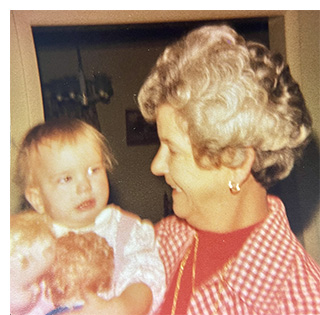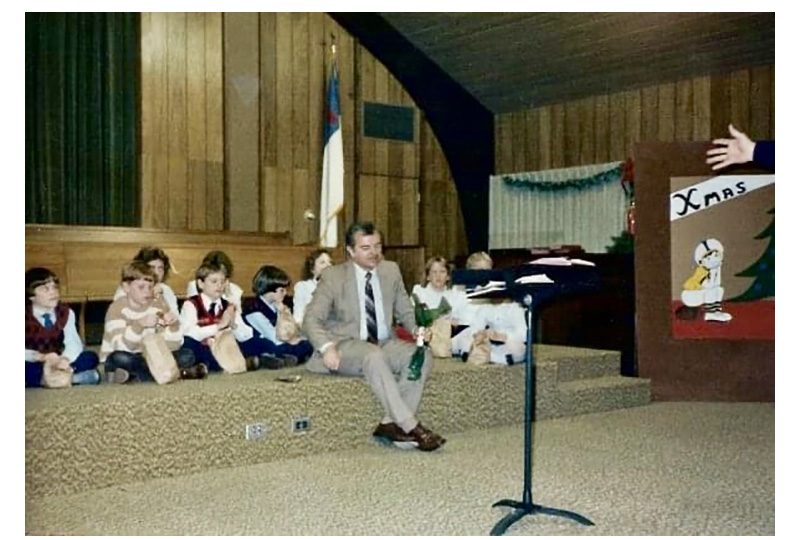In this third of six Christmas memories that Christian leaders are sharing with readers, Manhattan Christian College professor Genilyn McCaffrey describes why Christmas hymns have such meaning for her.
_ _ _
By Genilyn McCaffrey
As a preacher’s kid whose dad also happened to direct the church choirs, I spent the Sundays before Christmas in kids’ choir practices and waiting around for the adult rehearsals to finish. I sat through enough rehearsals that I could sing through all the songs of all the cantatas each year, whether I was actually in them or not.

I appeared as a little lamb amongst the angels, ladybugs, and fireflies, and was once an angel with a friend named Hark (he was the herald angel). I vaguely remember the year chicken pox made its way through most of the choir, and I distinctly remember the year I learned exactly why Dad kept telling us, “Don’t lock your knees.”
When our family moved two states away, Christmas also became intimately connected with my grandparents. We were still very close, but geography kept us from seeing each other often.
Every Christmas, we’d pack wrapped presents for the long drive, promising ourselves that we wouldn’t bother with taking presents the next year. Every year, we’d travel up and down the mountain from one set of grandparents to the other, promising ourselves that we’d plan better the next year so we wouldn’t have so many trips back and forth. Every year was a hassle, but the hassle meant we got to be together. To be home.
It’s funny how a memory can be vivid and blurry at the same time. I think it was the first Christmas after my grandfather died. His death marked the closest that death had come to me. I’d been shocked by how intensely grief had stricken me, a stoic 15-year-old (or so I believed). I was terrified of our Christmas trip a few months after his death, because I didn’t want to be blindsided by grief yet again.
That Sunday, we attended church in the mountains with my grandmother. We all acted happy and excited because it was Christmas, but it was so hard to sing that day.
Disperse the gloomy clouds of night, and death’s dark shadows put to flight . . .
He knows our need—to our weakness is no stranger.
. . . In all our trials, born to be our Friend.
. . . with the dawn of redeeming grace . . .
Mild he lays his glory by, born that man no more may die . . .
Words planted in my mind and heart long before I could read suddenly became very real, holding out hope in great sorrow.
Those words have carried me as I’ve sung them with joy and confidence, and they’ve carried me as I’ve sung them with a lump in my throat and tears in my eyes. I’ve sung them in nursing homes and hospice houses, at church and in the car, and with a chapel full of dearly loved students.
It wasn’t the words themselves that carried me. The truth behind those words—and the Word whose story they tell—have carried me in ways that go beyond explanation.
All praise to the One born to give us second birth!
_ _ _
Dr. Genilyn McCaffrey serves as professor of Bible and head of the Bible/Theology Department at Manhattan (Kan.) Christian College.


Love my daughter and her memories. Now she is blessing another generation of servants of the Lord.